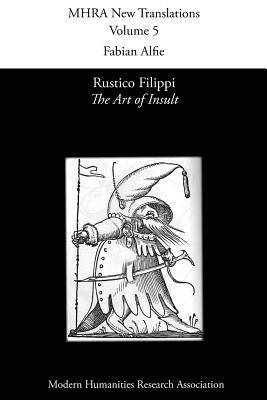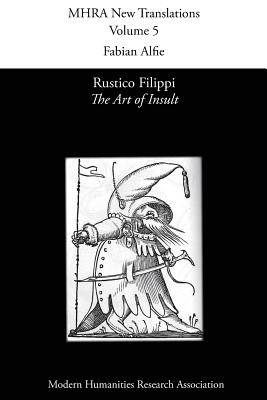
Bedankt voor het vertrouwen het afgelopen jaar! Om jou te bedanken bieden we GRATIS verzending (in België) aan op alles gedurende de hele maand januari.
- Afhalen na 1 uur in een winkel met voorraad
- In januari gratis thuislevering in België
- Ruim aanbod met 7 miljoen producten
Bedankt voor het vertrouwen het afgelopen jaar! Om jou te bedanken bieden we GRATIS verzending (in België) aan op alles gedurende de hele maand januari.
- Afhalen na 1 uur in een winkel met voorraad
- In januari gratis thuislevering in België
- Ruim aanbod met 7 miljoen producten
Zoeken
Rustico Filippi, 'The Art of Insult'
Paperback | Engels
€ 36,95
+ 73 punten
Omschrijving
Rustico Filippi (ca. 1230-ca. 1299) was probably the first Italian poet to explore the poetics of insult. During the Middle Ages, literature was categorized as a subset of ethics; through the descriptions of characters, all literature consisted of the praise of the worthy, or of the blame of the reprehensible. Literature enforced traditional morality by inspiring admiration or condemnation in its readers. By writing a series of insulting caricatures, Filippi developed the poetry of blame in medieval Italy. His sonnets put the unseemly characteristics and actions of fellow Florentines on display for public ridicule. He derides men for their cowardice, women for their illicit sexuality, and members of both sexes for their filthiness and vice. Filippi inspired numerous imitators, and initiated a centuries-long tradition of insulting verse. One of the people indebted to Rustico was Dante Alighieri, whose negative portraits in Inferno have roots in Filippi's derisive sonnets. Fabian Alfie is a Professor of Italian at the University of Arizona.
Specificaties
Betrokkenen
- Vertaler(s):
- Uitgeverij:
Inhoud
- Aantal bladzijden:
- 200
- Taal:
- Engels
Eigenschappen
- Productcode (EAN):
- 9781781881576
- Verschijningsdatum:
- 18/11/2014
- Uitvoering:
- Paperback
- Formaat:
- Trade paperback (VS)
- Afmetingen:
- 156 mm x 234 mm
- Gewicht:
- 285 g

Alleen bij Standaard Boekhandel
+ 73 punten op je klantenkaart van Standaard Boekhandel
Beoordelingen
We publiceren alleen reviews die voldoen aan de voorwaarden voor reviews. Bekijk onze voorwaarden voor reviews.








